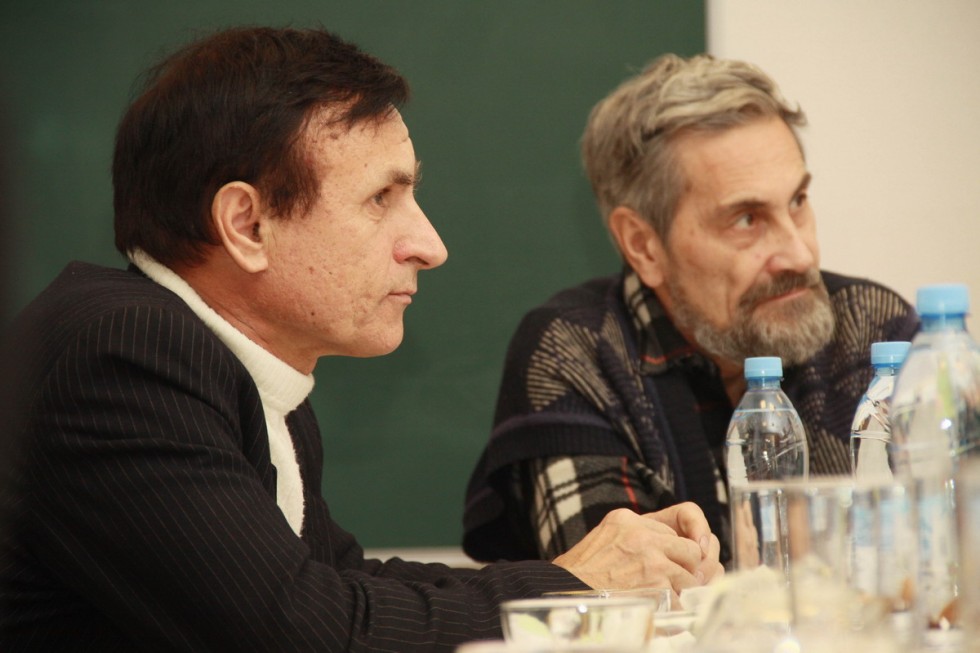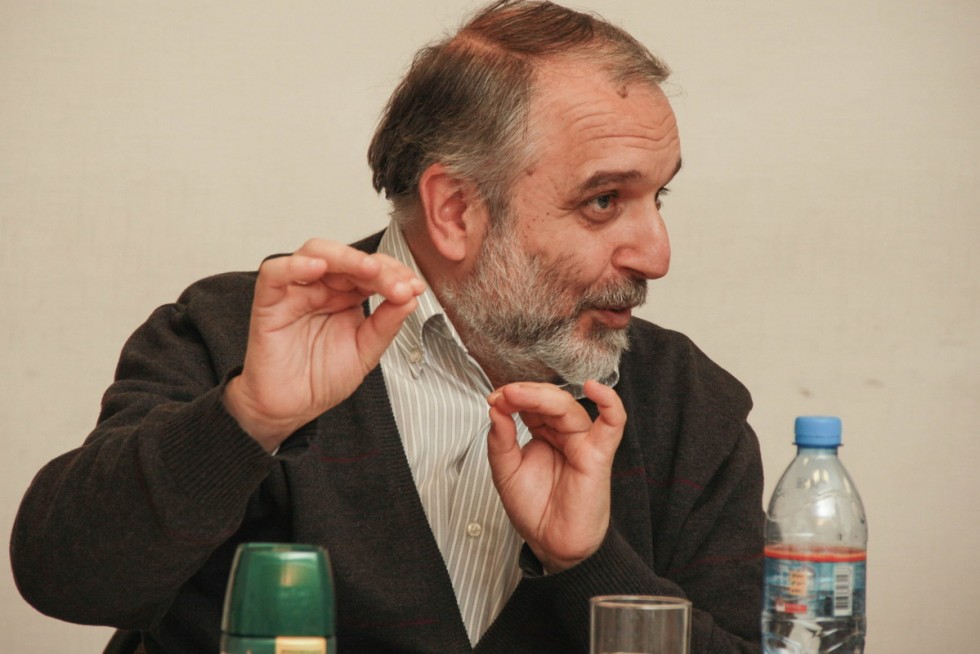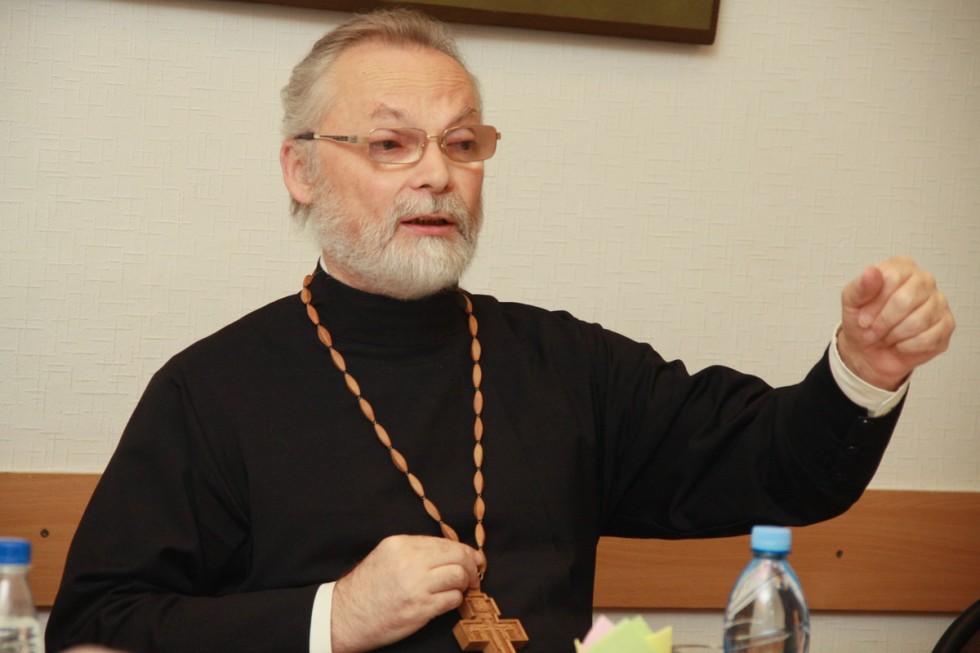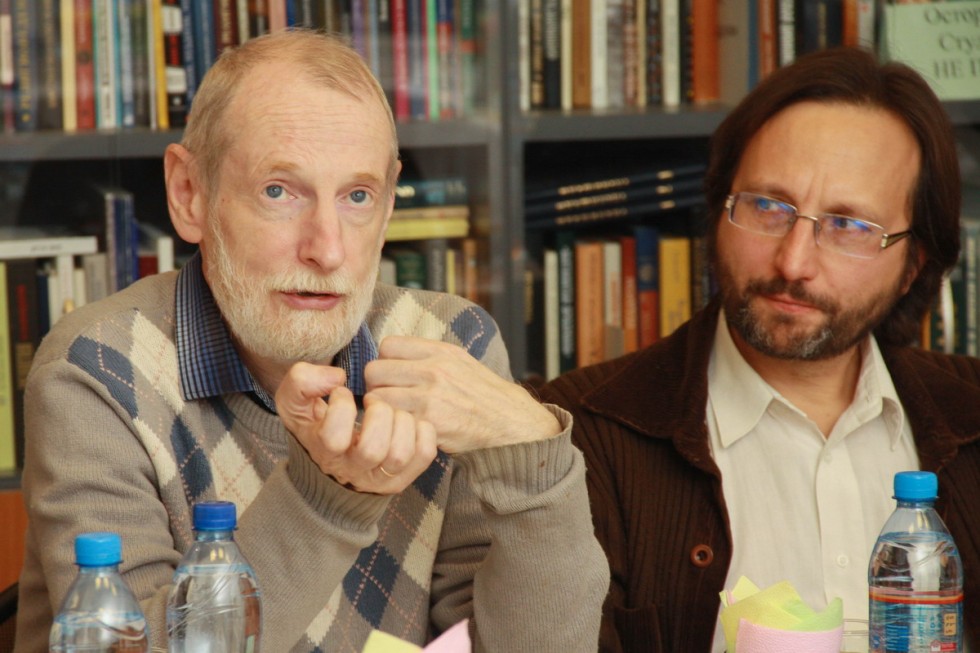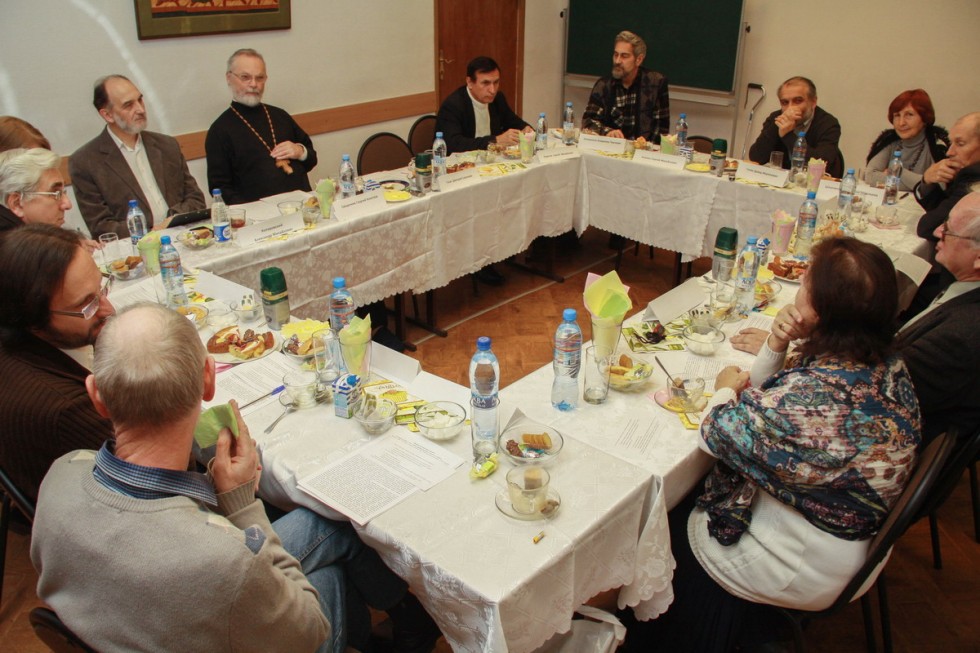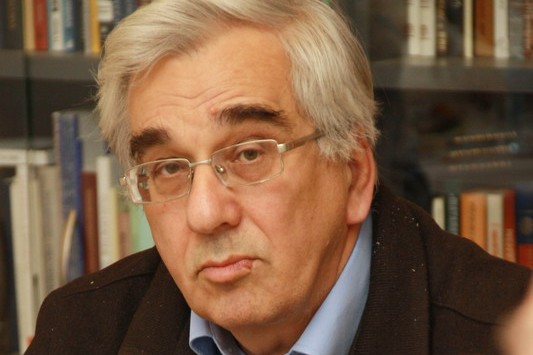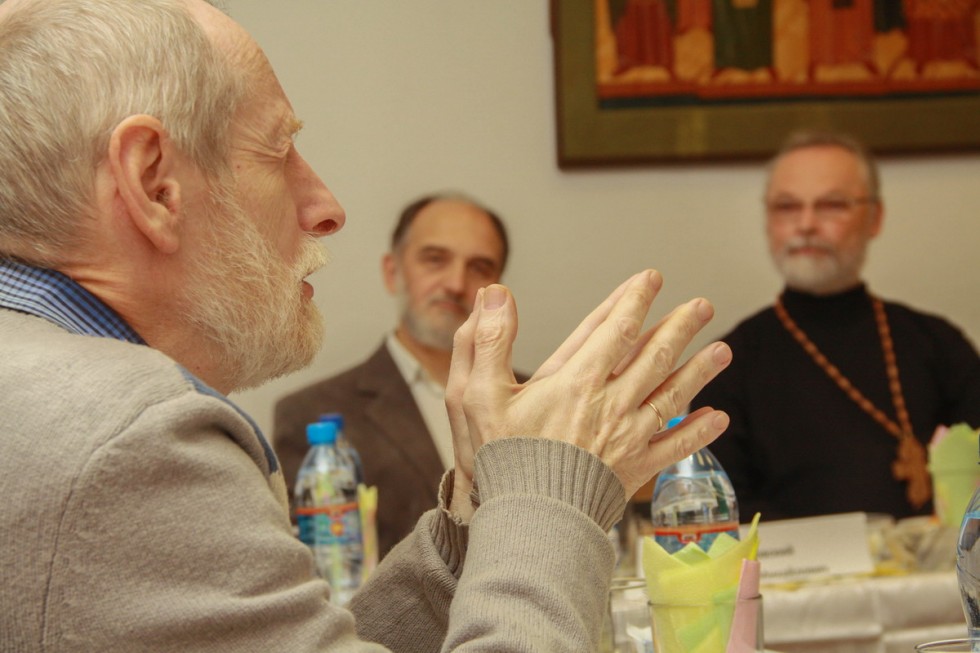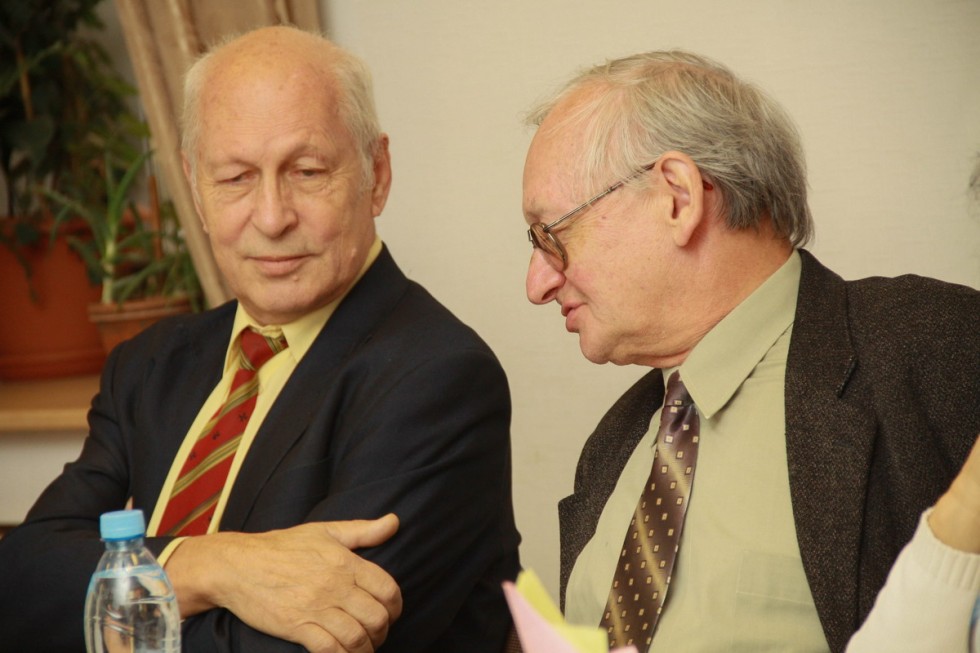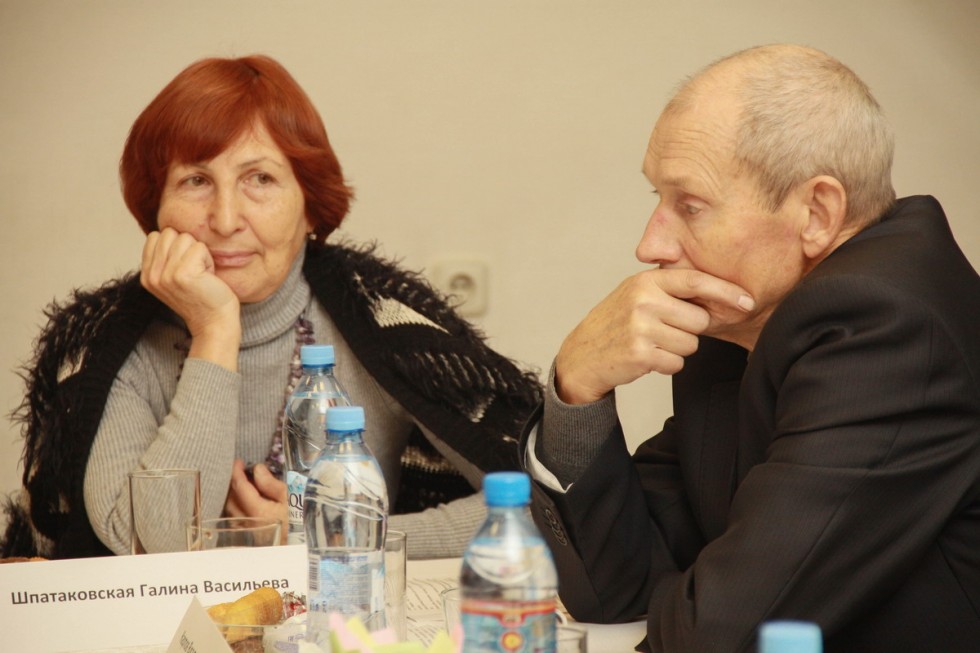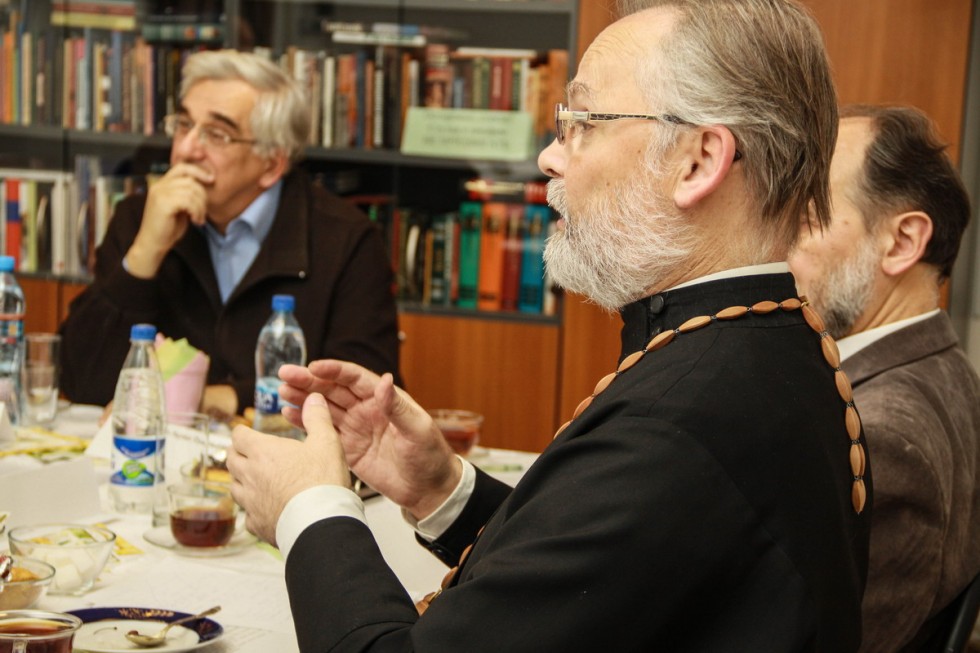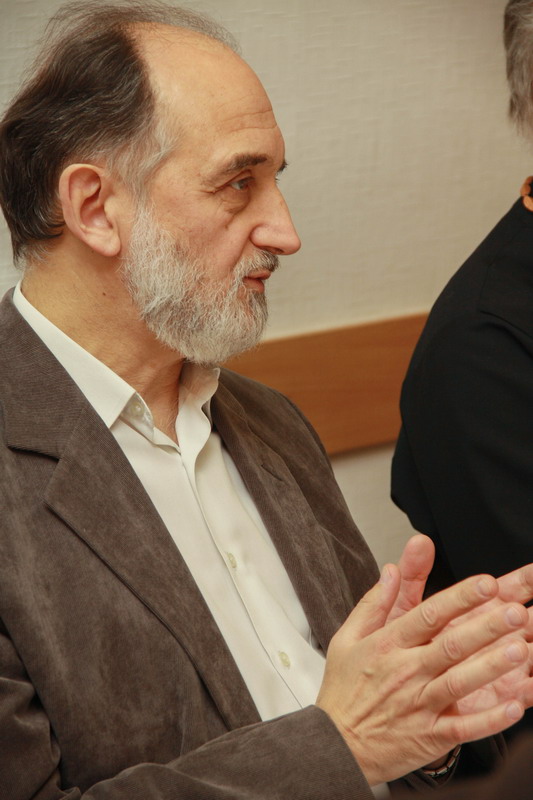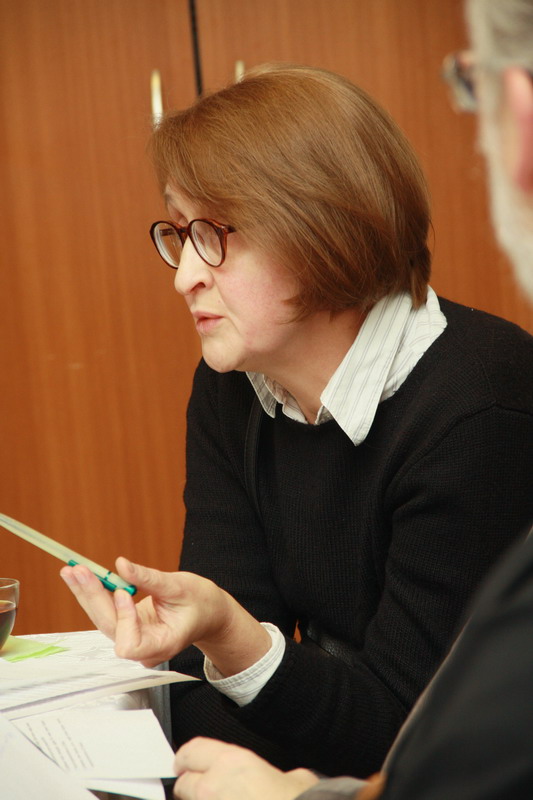Physicists and Theologians on Good and Evil
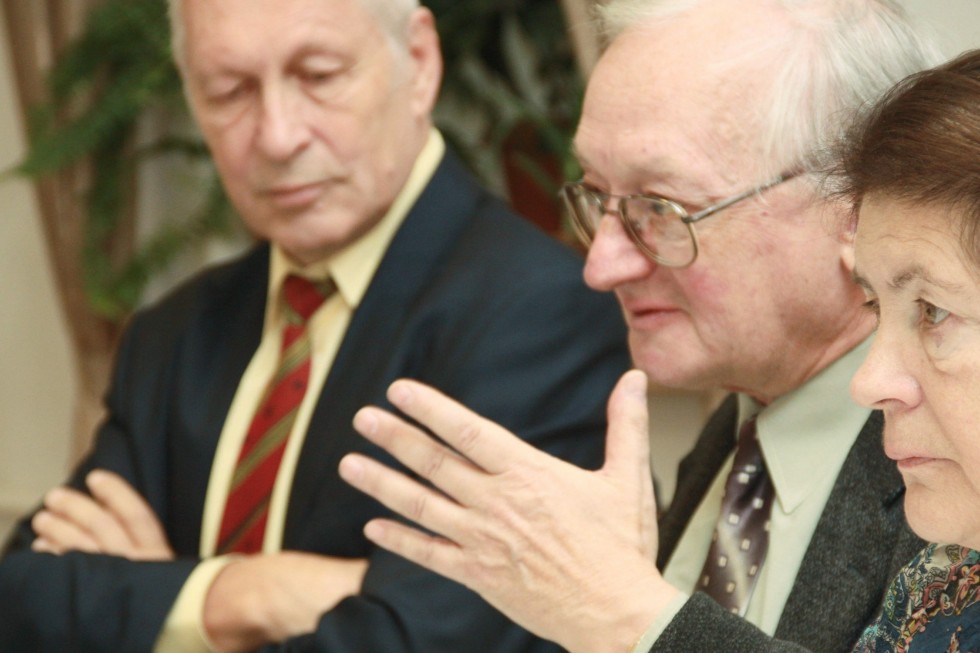
Alexey Starobinsky, Academician of the Russian Academy of Sciences
A wonderful group of permanent participants has been established since physicists and theologians started meeting regularly two years ago. However, new participants have also been made welcome.
The discussion about good and evil turned out to be a discussion about the person. Is our ability to discern between good and evil rooted in social norms, or does it go deeper? What is primary: social experience or ‘the still small voice’ of conscience?
Academically, the question of ‘which came first, the person or society?’, is just as complex as the chicken-and-egg question, said Dr. Grigory Gutner, Head of SFI’s Department of Philosophy, Humanities and Natural Sciences. But is sociology appropriately placed to grasp the very concepts of good and evil? The discussion highlighted the fact that the concepts do not gain gravitas when we try to explain them in academic terms. On the contrary, to admit that good and evil have social origins is the same as saying that good and evil do not exist as moral categories.
“Undoubtedly, good and evil do exist. Yet, rather than being linked to social attitudes, our concept of them is rooted in what we call the Tradition, or the cumulative experience of mankind”, says Alexey Starobinsky, Academician of the Russian Academy of Sciences.
Theologians suggest searching the depths of human spirit for the most reliable way of discerning between good and evil. There is something elusive about human beings, something that sets them aside from all other creatures of this world. Fr. Georgy Kochetkov, Rector of SFI, reminded the participants that the very ability to discern between good and evil was of this nature and that it invested the person with dignity in the eyes of God.
Grigory Gutner offered a philosophical answer, namely that the good could be viewed up as ‘a human being’s attempts to remain human’.
The discussion brought together Sergey Rubin, Doctor of Physics and Mathematics, Professor of the National Research Nuclear University (Moscow Engineering Physics Institute); Alexander Bagrov, Doctor of Physics and Mathematics, research associate at the Institute of Astronomy of the Russian Academy of Sciences; Vladimir Karpov, Doctor of Physics and Mathematics (I. S. Bruk Institute for Electronic Control Machines); Galina Shpatakovskaya, Doctor of Physics and Mathematics, leading research associate at the M. V. Keldysh Institute of Applied Mathematics; Sergey Neretin, Chief Expert at the National Research Centre ‘Kurchatov Institute’; Vladimir Logvinenko, Senior Lecturer at People’s Friendship University of Russia; Alexander Kopirovsky, Academic Secretary of SFI; David Gzgzyan, head of the Department of Theology Studies and Liturgics of SFI; Larisa Musina, head of the Department of Holy Scripture and Biblical Studies of SFI. The conference was moderated by Maxim Zelnikov (P. N. Lebedev Institute of Physics of the Russian Academy of Sciences / St Philaret’s Institute).
The next meeting between physicists and theologians is scheduled for late December.
